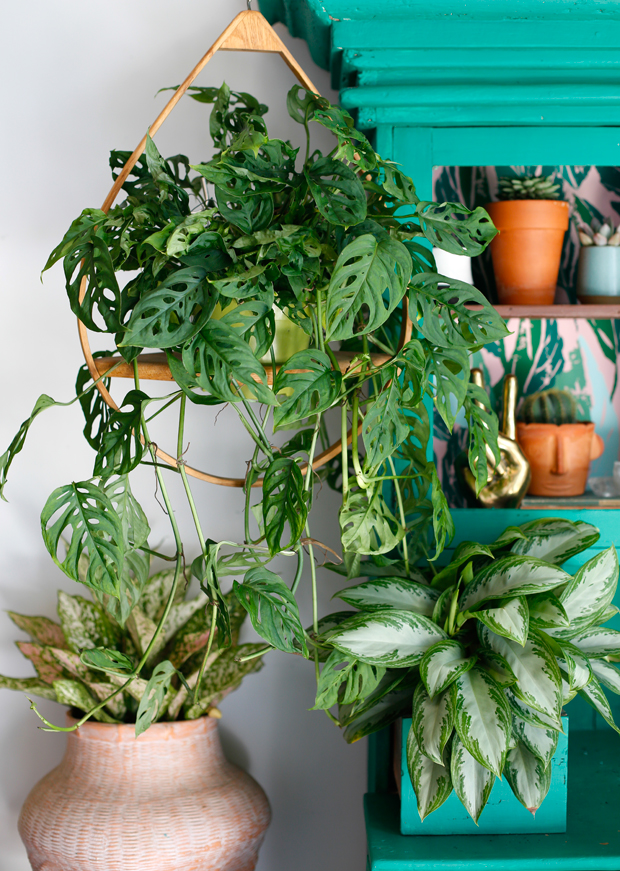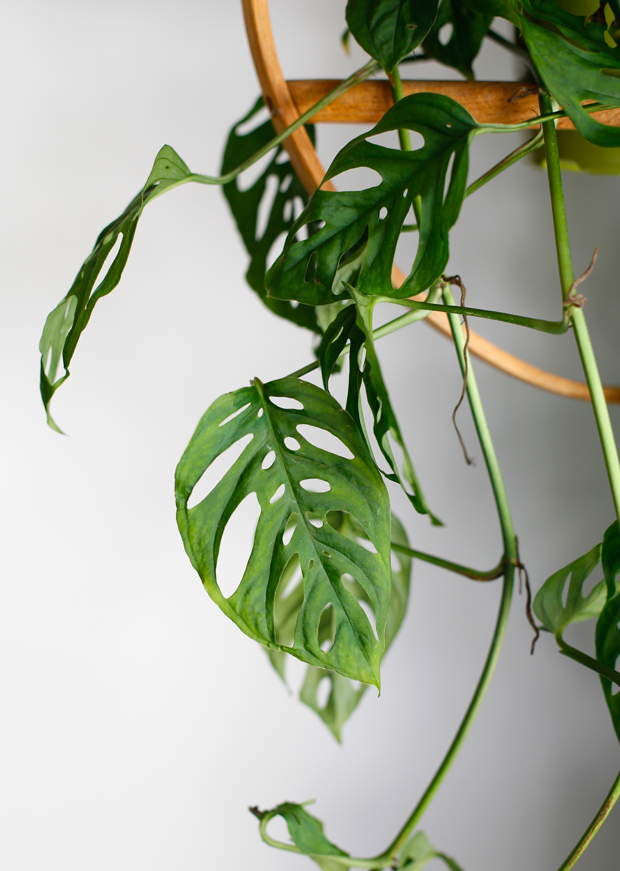Monsteras have certainly had a moment over the last few years- and deservedly so, a plant that makes a graphic statement all on its own is hard to resist! It's vine-ier cousin, the Monstera adansonii, or Swiss Cheese Vine, however has really grabbed our attention now. More delicate than the larger 'Split Leaf' Monstera, the Swiss Cheese Vine doesn't need quite as much light, and can be trained to climb pretty much anywhere- perfect if you're short on floor space, but want a little plant drama in a room. Its leaves are a bit tender, and it is a bit particular about water, so we wouldn't call it an easy-care plant, but once you get the hang of keeping it happy, the pay off in showy vines is worth the effort.
GET THE GREEN: Swiss Cheese Vine (Monstera adansonii, sometimes mistaken for the rarer Monstera obliqua)
WATER: Water regularly, keeping the soil moist, but not soggy. Depending on how much light it receives, temperatures, size, etc, once a week is usually a good rhythm. Yellowing leaves may indicate overwatering, or poor drainage- a pot with a drainage hole is best. Pay extra attention to humidity in the winter if you have heat running regularly- a humidifier will help.
SUNLIGHT: Bright to medium indirect light. Avoid direct sun.
PLACEMENT: This plant is a great ‘spiller’ and looks best in a hanging planter or on a shelf where there’s room for the vines to wander. If vines get too straggly looking, regular trimming will help encourage new growth. Leaves will grow to be larger if the plant is trained to climb a moss pole- the way it would grow in the wild!
EXTRA CREDIT: Swiss Cheese Vine can be fairly easy to propagate by taking a cutting that includes at least 2 leaf nodes (little dark knobby looking thing on the vines), and allowing to root in either water, or just sticking directly into potting soil. If you have trouble finding this plant, try joining a plant group either locally or online- most members are happy to trade cuttings and it's an easy way to try out new-to-you plants, and share your favorites too!
WORD OF CAUTION: According to the ASPCA Monsteras are toxic to most animals if consumed. Use caution or consult your vet whenever bringing new plants into a home with pets.
Have a houseplant you’d like to learn more about? Leave a comment and you might see it in a future Plant-o-Pedia post!
Photography: Danae Horst for The Jungalow

